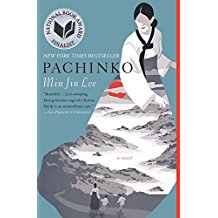
When I began reading Pachinko by Min Jin Lee, I initially thought this was the best book I have read so far this year. I had planned on writing a stellar book review. A National Book Award finalist, it tells the story of an impoverished sixteen-year-old girl named Sunja in 1930’s Korea. Sunja has a relationship with Hansu, a wealthy, powerful, older businessman who frequents her region. Sunja naively believes Hansu will marry her. Only when she gets pregnant and reveals she is carrying his child does she find out he is a married man who lives in Japan. Hansu, who has three daughters with his wife, wants Sunja to be his wife when he travels to Korea. Knowing this is not honorable, Sunja rejects his offer for a much easier life and stays with her mother while they struggle to make ends meet. Soon, she meets Isak, a Korean missionary on his way to Japan to help build a church. Isak is willing to marry her and does not even question who fathered her child. He selflessly wants to give the unborn child a name. They move to Japan where Sunja gives birth to a son.
Unlike the first half of the book where the reader encounters characters living lives of quiet nobility, the second half is filled with vengeful and sexually depraved characters who wreak havoc. The writing is polished and author Lee offers beautiful imagery in her descriptions (“The sea was bluer than she had remembered, and the long, thin clouds seemed paler—everything seemed more vibrant with him here.”). But unfortunately, the characters go from Biblical in majesty to wreaking sensationalized tragedies. Lee spends too much time on the challenges of minor characters and transforms a few from kind and friendly to malicious in a single scene. The emphasis becomes Japanese racism of Koreans, depriving them of good careers and citizenship, despite their families having lived in Japan for generations. Lee never clearly explains what pachinko is, but I gather it is a gambling casino, one of the few jobs Koreans can work and make a decent living in Japan. By the end, the beauty of the story and its characters are lost and all the reader is left to contemplate is Japanese bigotry and foreign powers taking control of Korea itself, splitting the nation in half. Koreans in Japan no longer have their homes in Korea and those from the North who return end up starving to death. Thus, most have no choice but to endure the ongoing discrimination in Japan. An unsatisfying read after a remarkable beginning.